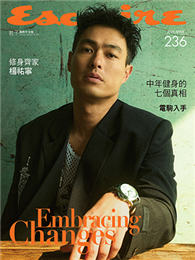This groundbreaking study examines the unlikely merger of two Japanese cultural phenomena, an 11th-century aristocratic text and contemporary manga comics. It explores the ways in which the manga versions of The Tale of Genji use gender, sexuality, and desire to challenge perceptions of reading and readership, morality and ethics, and what is translatable from one culture to another.
Lynne K. Miyake shows that, through their girls, ladies, Boy Love, boys and young men, and informational comics remediations of the tale, the manga Genjis visually, narratively, and affectively rework male and female gazes; Miyake reveals how they gently inject humor, eroticize, gender flip, queer, and simultaneously re-inscribe and challenge heteronormative gender norms. The first full-length study of Genji manga, this book analyses these adaptations within manga studies and the historical and cultural moments that fashioned and sustained them. It also interrogates the circumscribed, in-group aristocratic society and the consumer and production practices of the Heian society that come full circle in the manga versions. The Tale of Genji through Contemporary Manga utilizes western queer, feminist, sexuality and gender theory and Japanese cultural practices to illuminate the ways in which the Genji tale redeploys itself. Yet it also provides much needed context and explanation regarding the charges of appropriation of prepubescent (fe)male and gay bodies and the utilization of (sexual) violence mounted against Genji manga-and manga and anime in general once they went global.| FindBook |
有 1 項符合
The Tale of Genji Through Contemporary Manga: Challenging Gender and Sexuality in Japan的圖書 |
 |
The Tale of Genji Through Contemporary Manga: Challenging Gender and Sexuality in Japan 作者:Miyake 出版社:Bloomsbury Academic 出版日期:2024-07-11 語言:英文 規格:精裝 / 288頁 / 23.39 x 15.6 x 2.54 cm / 普通級/ 初版 |
| 圖書館借閱 |
| 國家圖書館 | 全國圖書書目資訊網 | 國立公共資訊圖書館 | 電子書服務平台 | MetaCat 跨館整合查詢 |
| 臺北市立圖書館 | 新北市立圖書館 | 基隆市公共圖書館 | 桃園市立圖書館 | 新竹縣公共圖書館 |
| 苗栗縣立圖書館 | 臺中市立圖書館 | 彰化縣公共圖書館 | 南投縣文化局 | 雲林縣公共圖書館 |
| 嘉義縣圖書館 | 臺南市立圖書館 | 高雄市立圖書館 | 屏東縣公共圖書館 | 宜蘭縣公共圖書館 |
| 花蓮縣文化局 | 臺東縣文化處 |
|
|
圖書介紹 - 資料來源:博客來 評分:
圖書名稱:The Tale of Genji Through Contemporary Manga: Challenging Gender and Sexuality in Japan
|











